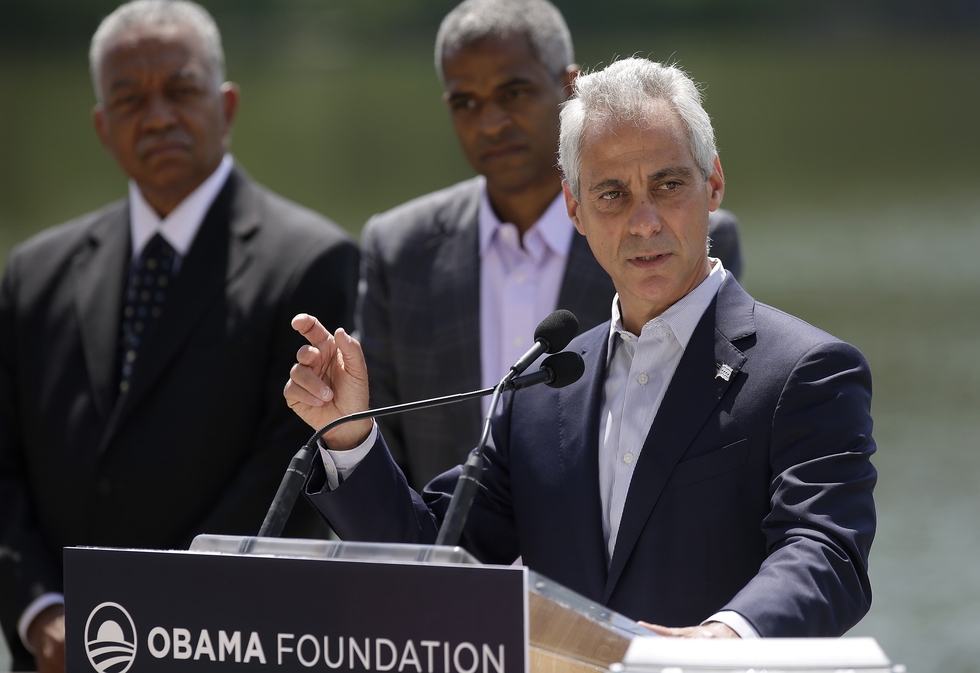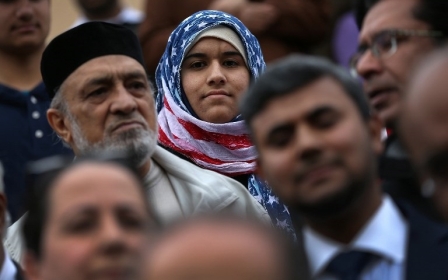In Trump's America, cities pledge to be 'sanctuaries' for undocumented immigrants

Along with several major US cities including Seattle and New York, Chicago affirmed this week that it plans to remain a "sanctuary city" for immigrants, in defiance of President-elect Donald Trump, who campaigned on a promise to deport millions of undocumented immigrants.
San Francisco and Los Angeles have made similar affirmations since Trump's election on 8 November, vowing to refuse to jail undocumented immigrants for deportation purposes and pledging that public services will continue to be offered regardless of legal status.
"To all the children and all the families who are unsure of their place because of what happened Tuesday," Chicago Mayor Rahm Emanuel said at a news conference, "you are safe, you are secure and you are supported in the city of Chicago."
Emanuel, a Democrat who was chief of staff during President Barack Obama's first term, said young undocumented people will still be able to go to school and qualify for free community college education.
"That speaks volumes to where our values are," he said.
In an interview that aired on the CBS "60 Minutes" news programme over the weekend, Trump said he plans to deport or jail as many as three million immigrants with criminal records upon taking office.
"What we are going to do is get the people that are criminal and have criminal records, gang members, drug dealers, where a lot of these people - probably two million, it could be even three million - we are getting them out of our country or we are going to incarcerate," Trump said.
Seattle's Mayor Ed Murray echoed Emanuel's statements.
“Seattle has always been a welcoming city,” Murray said on Monday. “The last thing I want is for us to start turning on our neighbors.”
Seattle’s Police Chief, Kathleen O’Toole, affirmed Mayor Murray’s sentiments.
“The city of Seattle remains committed to values of equality, inclusion and openness,” O’Toole said. “So does the Seattle Police Department.”
“I have a lengthy track record on this issue. It’s important that the most vulnerable know they can trust their local police,” she said in a different statement.
“Certainly, we’ll go after people involved in guns, gangs, drugs and exploitation, whether documented or undocumented. But we’re not going to turn our backs on the most vulnerable who need our services and support.”
Students 'terrified'
Experts estimate there are as many as 11 million undocumented immigrants in the US.
Since 2009, the Obama administration has deported 2.4 million immigrants from the country. But Obama has also offered a reprieve to young people who were brought to the US by their parents - so-called "Dreamers." By executive order, he granted them temporary residency rights, allowing them to go to school and work.
Trump could reverse the order, and had promised to do so during the campaign. He also promised to cut off federal funding for sanctuary cities.
His rhetoric has raised alarms in immigrant communities.
"Since the elections, my phone has been off the hook," said Tayna Cabrera, who heads the Illinois Dream Fund Commission that offers scholarships to undocumented college students.
"My students are terrified. Some of them haven't shown up to school," she said.
A visibly emotional Luis Gutierrez, a Democratic US congressman who represents parts of the Chicago area, said he will work with the incoming administration to reform immigration laws, as long as more than 700,000 young "Dreamers," who voluntarily identified themselves to the government, are not deported.
"We have fought too long to be divided today. The elections are over. Now, it is time to legislate and to organize," he said.
Middle East Eye propose une couverture et une analyse indépendantes et incomparables du Moyen-Orient, de l’Afrique du Nord et d’autres régions du monde. Pour en savoir plus sur la reprise de ce contenu et les frais qui s’appliquent, veuillez remplir ce formulaire [en anglais]. Pour en savoir plus sur MEE, cliquez ici [en anglais].



